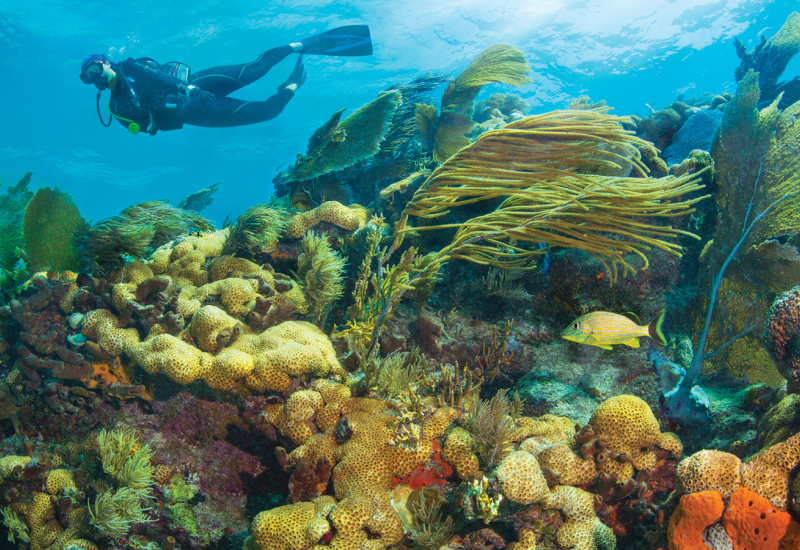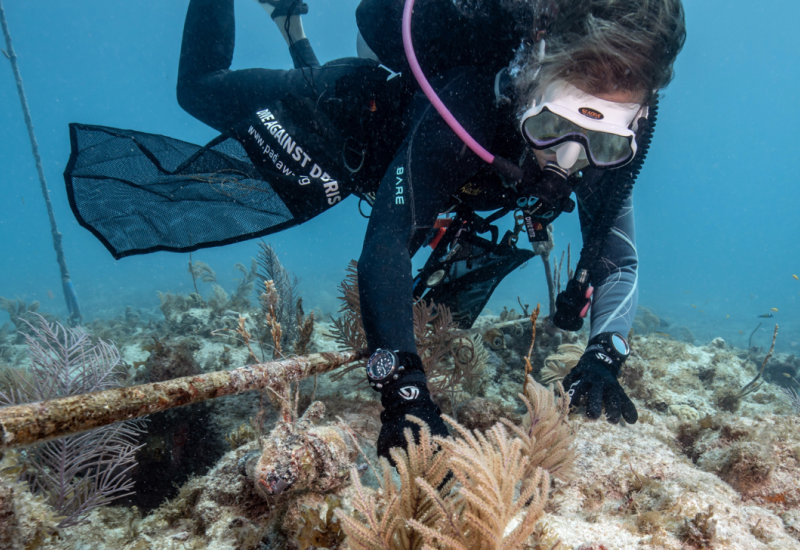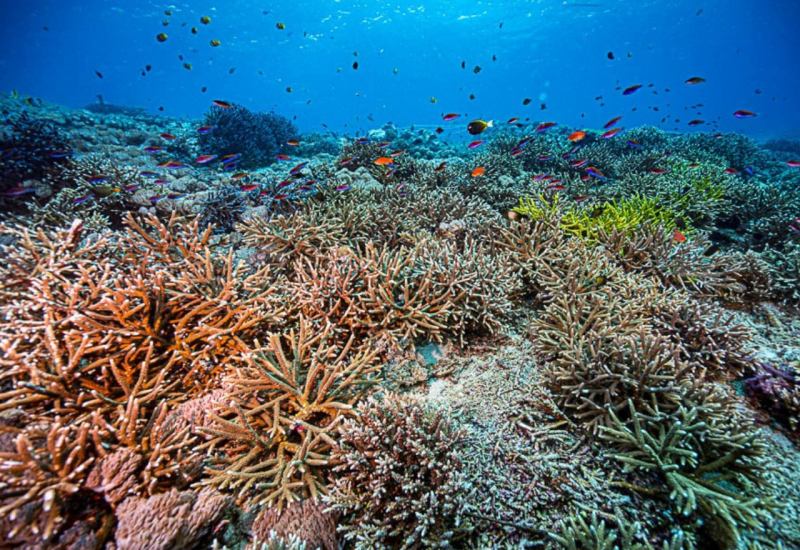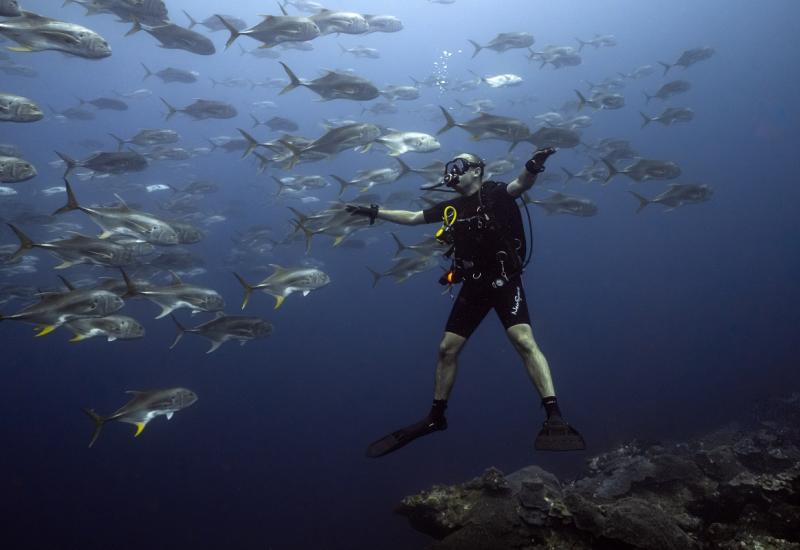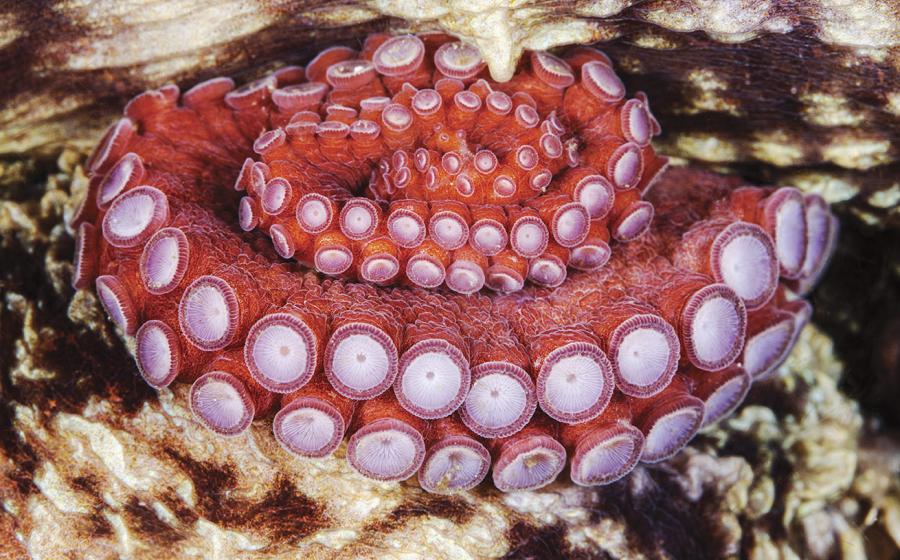Ocean Defenders Alliance Founder Kurt Lieber Honored for Ocean Protection
Scuba Diving magazine announces Kurt Lieber is the 2015 Sea Hero of the Year! The organization Lieber founded — Ocean Defenders Alliance — will be the recipient of a $5,000 prize from Oris Watches USA, sponsors of Scuba Diving's Sea Heroes awards. Look for the full story in our JanFeb 2016 issue, on newsstands Dec. 22.**
KURT LIEBER
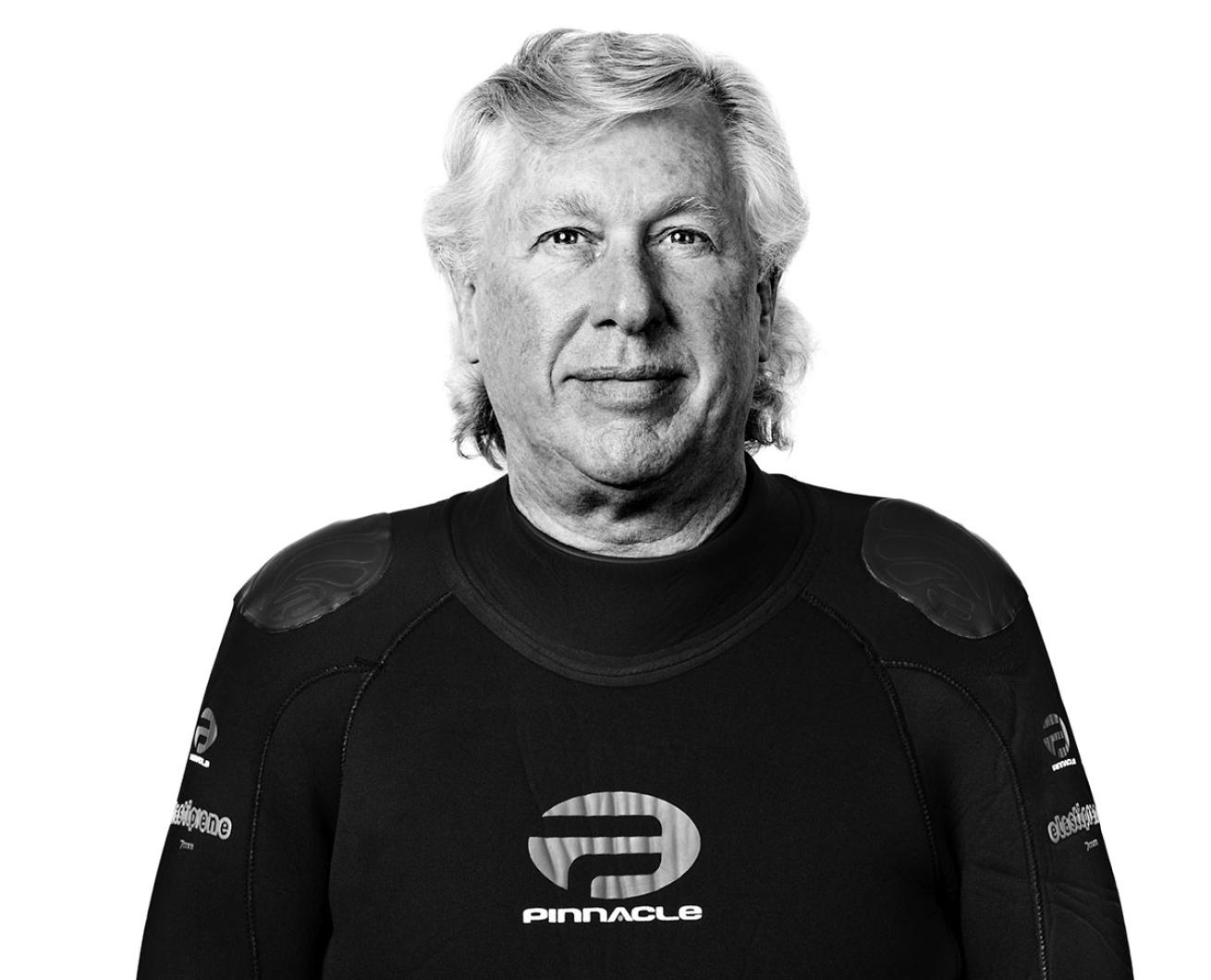
Patrick StrattnerOccupation Founder/executive director, Ocean Defenders Alliance
Diver Since Mid-1970s
Helped Establish California’s MPA network, which protects 16 percent of state waters, nearly 10 percent in no-take zones
Founded in 2000 amongst friends, Ocean Defenders Alliance now connects hundreds of divers and “deck volunteers” in its mission to protect California’s ocean treasures, especially from the deadly effects of ghost nets, equipment lost or abandoned by fishermen. For his efforts, founder and executive director Kurt Lieber is our November/December Sea Hero.
You have been involved in a lot of projects with Ocean Defenders Alliance — which has been the most meaningful to you, and why?
I started this organization in the year 2000, with some friends. Through the years, Ocean Defenders Alliance (ODA) has turned into a dynamic union, and we’ve had over 200 divers and hundreds more deck volunteers go out with us on various projects. In 2013, I contacted the people at the Channel Islands National Marine Sanctuary (CINMS) to see if they would allow us to go into the sanctuaries and start removing ghost gear there. This area is a national marine sanctuary, national park and marine-protected area. As such, its biological importance — and sensitivity — is without question. After a lengthy qualification process, we were given a scientific collecting permit. We are the only all-volunteer group with this permit that I know of. That means a lot to me.
What is the biggest challenge you have faced in your fight against ghost nets and marine debris in general?
When I first started ODA, I couldn’t find anyone who knew about the damage that was being done by ghost gear. The Internet still wasn’t a tool widely used to gather or share information. So, I had a difficult time convincing the general public that this was a serious issue; marine debris is a good but dismaying example of the old saying “out of sight, out of mind” as far as public consciousness goes. Fast forward 15 years, and the tide is changing. There is now a great source of scientific information available that informs people with a lot of statistics. One that absolutely makes me cringe is that NOAA estimates that 330,000 whales, dolphins, seals, sea lions and turtles die in ghost gear every year. The problem is that every year, the commercial fishing industry loses a staggering amount of gear (i.e., lines, nets, and traps). Consequently, our work is never done.
What's been your most satisfying moment?
The vast majority of nets we locate and remove are made out of synthetic material, like nylon or mono-filament line. Scientists have estimated that nylon nets will last 650 years in the oceans. A net that is in the water for that long does no one any good. Animals are dying continuously, needlessly, and divers are losing what we all want to see alive, FISH! The fishing community loses as well because of decreased populations. To date we have removed approximately 21,000 pounds of these deadly nets. One of my most satisfying moments was pulling together a fantastic group of volunteers, and together we removed about 1,000 pounds of gill net from just one location. That does not sound like a lot, but think about that for a moment. What would a 1,000-pound pile of fishing line look like? Well, that is what some of these deadly derelict nets are made out of; it can be a huge, and hugely harmful, collection!
Tell us a little bit about what you are working on now?
It is a really exciting time for us right now. Not only are we continuing to clean more of California’s coastal waters, such as in the CINMS, we are also in the midst of establishing a new base in ODA in Hawai’i. As awareness expands through the dive community, we are getting a lot of interest from different areas of the U.S. that are inquiring about creating ODA bases all over the country — and we know that ALL coastal waters need the kind of service we provide. The Seattle/Portland area is looking promising for a future base as well.
How can divers and Scuba Diving's readers help further your work?
As anyone who has ever owned or been around a boat knows: Things are always needing maintenance, repair or replacement! We have the manpower and know-how, but we are constantly working to keep our boats running well and fueled up. So, to keep us at sea doing what we do best, donations are very welcomed. Another option is to start a removal project in areas where your readers come across debris. And I don’t mean only ghost gear. Plastics are a huge plague that we have got to address if we want to future generations to enjoy the wide variety of life forms that the oceans historically have supported. Want to know what the oceans looked like before the invention of the steam engine? Read The Unnatural History of the Sea by Callum Roberts for a good dose of reality. In other words: Get educated and get involved! If this problem is going to be solved, we are the ones who are going to have to make it happen.
What's next for you and Ocean Defenders?
We purchased a new (used) boat late last year, and we’ve been working on upgrades and repairs ever since. It is currently berthed in San Pedro, California. As soon as we are finished with this phase, we’ll be moving the boat up to the Channels Islands Harbor, and resume our removal projects in the Channel Islands.
What would you do with the $5,000 Oris award if selected for Sea Hero of the Year?
If I am selected for this honor, I will put the money directly into our boat in order to launch additional debris-removal expeditions. I have recently received reports of several marine debris sites throughout Southern California that urgently need our removal expertise. This award would allow us to travel further from our home port and get to sites we haven’t been able to reach because of the high costs of fuel, oil and boat maintenance.
Is there anything we did not ask that you would like readers to know about? Tell us what's important to you!
I’ve been diving since the mid ’70 s, and have seen a drastic decline in biodiversity, water quality and wildlife sightings and interactions. Having witnessed this loss first hand is what drives me to do what I can, in my lifetime, to defend ocean life and habitats. Over the last 15 years or so, I have seen what marine-protected areas (MPAs) can do to help marine species bounce back. I was heavily involved in the state of California’s decision to create MPAs up and down our coast. While the scientists recommended that 30 percent of our waters be set aside as no-fishing zones, when all was said and done, we ended up with 16 percent of our state waters having some kind of protection, and only 9.4 percent of that is no-take. A far cry from what the science dictated for species’ survival. But it is a start. I would love to see our no-take areas expanded, not just in California but throughout the world. The effort we are putting into aquaculture as a “work around” for our diminished fish populations is like putting Band-Aids on a cancer patient. We must attack the root cause, which in this case is the threat to wildlife species and habitats caused by overfishing. Nature has proven time after time that she can heal herself if we leave her alone. MPAs are one of the few real remedies for our dying oceans.
Lastly, I want to leave readers with hope. Each of you reading this can make a difference; you must simply choose to become involved. You can educate yourself and others. You already possess the power to influence things for the better through your votes, your buying decisions, what you eat and where you invest your time and resources. All you have to do is join our alliance and be an Ocean Defender!
Each Sea Hero receives an Oris Aquis Date watch valued at $1,595. At the end of the year, a panel of judges selects a Sea Hero of the Year, who receives a $5,000 cash award from Oris to further his or her work. Go to scubadiving.com/seaheroes to nominate a Sea Hero today.

